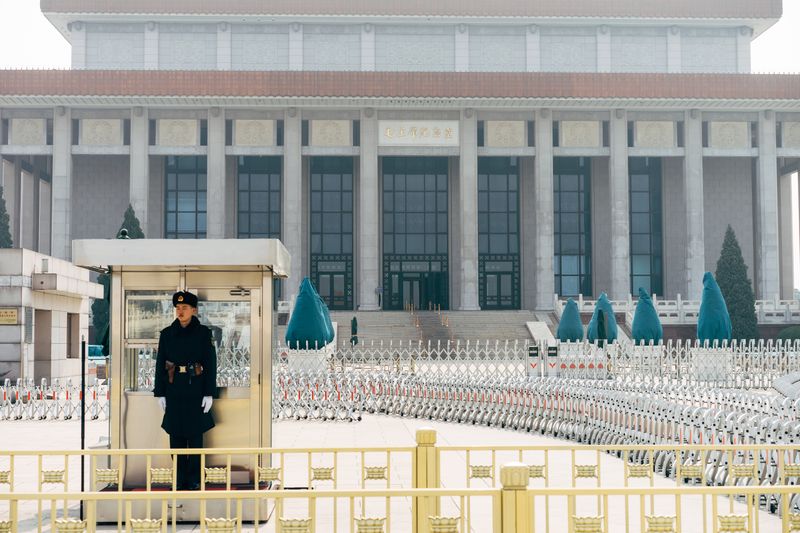In 2019, Zoom, the American videoconferencing platform faced a massive crisis when the Chinese authorities decided to block the platform, claiming that it hadn’t done enough to suppress anti-government speech. This was a major blow to Zoom as the company had both clients and a large development team in China and desperately needed to get up and running again in the country. To make that happen, Zoom complied with Beijing’s demands to suppress speech on the platform, according to court documents. As a result, the company drafted a “rectification plan” that pledged to monitor user communications for political views that the Chinese Communist Party deemed unacceptable, including any talk of the Tiananmen Square massacre, commentary about political unrest in Hong Kong, and rumors disparaging Chinese political leaders.
While a trio of Chinese laws passed in recent years gave the Chinese government expansive power over how data is stored, where it can flow and when it can be accessed, U.S. tech companies operating in China have made peace with the realities of doing business there. However, Zoom‘s experience in China illustrates the compromises required of firms doing business in China to ensure they don’t fall foul of censorship demands.
Zoom‘s links to China have raised concerns about whether it could maintain independence vis-a-vis the Chinese state, concerns that echo those associated with TikTok. Although Zoom is an American company, its sizable development team in China complicates matters. Zoom‘s CEO, Eric Yuan, maintains that Zoom‘s presence in China is a matter of course for a large technology company, but his decision to meet with an official at the heart of the Chinese surveillance state raises red flags.
Bringing tech companies to heel
According to the Justice Department, Zoom executives were aware of their employee’s work to suppress speech on the platform. While Jin and his co-conspirators concealed large parts of their plot from Zoom‘s senior leadership, the updated complaint reveals that at key points, Jin informed executives about his work to suppress speech.
Zoom‘s experience highlights the moral, legal, and financial risks of dealing with the Chinese Communist Party. As U.S. policymakers consider how to address the security concerns raised by TikTok, the events described in the updated indictment provide “an extraordinary justification” for why the United States should take action against Chinese software in the United States, said Jacob Helberg, a commissioner of the U.S.-China Economic and Security Review Commission.
Moreover, it is essential for democratic governments worldwide to do a better job in securing foreign firms from foreign coercion or influence. As the Chinese government makes no distinction between Chinese people living in China and members of the diaspora, it uses its access to data centers in cooperation with Chinese tech companies such as Zoom to enforce its speech laws far beyond its borders.
Watch what you say
Chinese dissidents challenging the state have long known that they face a threat of surveillance, and the lack of clarity regarding the relationship of firms such as Zoom and TikTok with the Chinese government means that the choice of platform ends up shaping political speech for critics of the regime. Many individuals who speak negatively about the Chinese Communist Party, either online or in-person, face persecution, including the imposition of criminal charges, severe travel restrictions, the intimidation of family members, forced disappearances, and, increasingly, extrajudicial detention in prison-like facilities, including of Uighurs and other ethnic and religious minorities.
The coercion of individuals in China to suppress the speech rights of individuals outside China raises troubling implications for technology companies trying to operate in China. More than three years after their access to Zoom was blocked in China, kicking off the scheme to suppress speech on the platform, Zoom executives concede that the company’s presence in China remains a risk.
Recommendation:
The lack of transparency requirements for companies in the U.S. makes it difficult to evaluate the risks posed by platforms such as Zoom. The government must establish regulations to limit the risk to individuals, and companies need to be transparent about their relationships with foreign governments, should be held to standards when it comes to freedom of expression—fostering a space for speech rather than silencing it.
Democratic governments worldwide need to hold Chinese firms accountable for their activities abroad and provide help or protection to those who

<< photo by Markus Winkler >>
You might want to read !
- The TL;DR Version of the Twitter Whistleblower Complaint
- Security Expert Lea Kissner Joins Lacework as New CISO
- “Uncovering the BEC Scheme: How Israeli Connection Paved the Way to Attack Multinational Companies”
- “Combatting Ransomware Attacks: Enhancing Cybersecurity with Identity-Focused Protection”
- Dragos, a cybersecurity firm, targeted by suspected ransomware attack and extortion attempt




